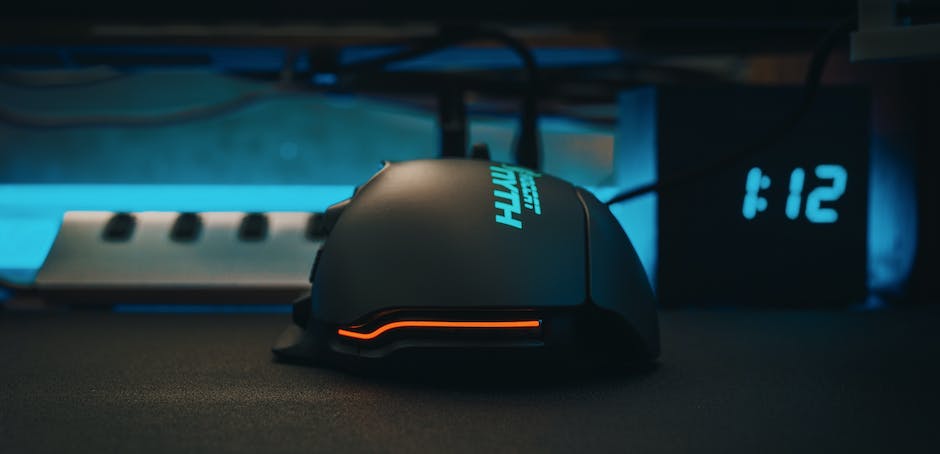Mice are known to cause all sorts of problems in homes and businesses, including chewing through insulation and wires. This chewing can create sparks that can start a fire. While it may not happen often, it’s important to be aware that it is a possibility if you have a mouse problem in your building.
Mice can cause electrical fires by chewing on electrical wires. This can create a short circuit that can start a fire.
Can mice set your house on fire?
Mice are one of the most dangerous pests to be in your home because if left alone, they can cause your house to catch on fire. This is why it is important to take measures to prevent them from entering your home in the first place, and to get rid of them as soon as possible if they do manage to get in.
There are a few reasons why rodents are such a problem when it comes to fires. One is that they are attracted to any source of food, and will gnaw on electrical wires in order to get to it. This can obviously create a fire hazard. Additionally, rodents are known to nest in all sorts of places, and their nest material is often flammable. This means that if a fire does start, it can easily spread to the nest and cause even more damage.
So, what can you do to prevent a rodent-related fire? First, make sure that your home or business is free of food sources that might attract them. This means keeping things like food scraps and garbage properly disposed of. Second, seal up any openings or cracks that rodents could use to get inside. And finally, if you do have a rodent problem, be sure to call in a professional to help get rid of them before they cause any more damage.
Can a mouse cause electrical problems
If you have any electrical problems in your home, it’s important to call a professional to help you fix the issue. Rodents chewing through wires is a serious problem that can cause your electrical system to fail or even start a fire. Don’t try to fix the problem yourself, always call a professional to help you out.
The top signs rodents have damaged your wiring include:
Visible bite marks on wiring and cables
Scratching sounds behind your walls
Nests and droppings in your walls/attic/elsewhere around your property
Flickering lights
Malfunctioning appliances
Frequently tripped circuits
Appliance failure
Frequent power fluctuations
How often do mice start fires?
Rats and mice are known to cause fires by chewing through electrical wires. It is estimated that they cause around 20% of undetermined house and structure fires in the United States each year. This is a serious problem that should be addressed to prevent future fires.
House mice may be cute and cuddly, but they are a real health hazard. Their feces and saliva can spread bacteria, contaminate food sources, and give you allergic reactions.
Are mice in walls a fire hazard?
Hi,
If you have rodents in your home, they may chew on electric wires and cause a fire. To prevent this, you can try to keep them away by sealing up any holes or cracks they may use to get in, and removing any food sources that may attract them. You can also try traps or poisonous bait, but be sure to use these safely and according to directions. If you have any concerns, please call a professional exterminator.
Rodents have a tendency to move around more during summer as opposed to other seasons. This is a necessity for their survival – to relocate from their winter and spring nests into places where they will be more comfortable during the summer heat.
How do I keep mice out of my electrical panel
Unfortunately, rodents can be persistent, finding tiny cracks to squeeze through and even chewing their own way in. Inspect your home and seal up cracks or holes with caulk, foam spray or other barriers to entry to help keep them out.
Mice are small animals that can squeeze themselves into tiny spaces. They can enter your home through cracks in your foundation or any other small gaps. Once they are in, they will build nests and multiply. Mice can cause damage to your property and pose a health risk to you and your family. Be on the lookout for holes in your baseboards, screens, and any gaps for plumbing or electrical wiring. These can be entry points for mice. seal any cracks or gaps that you find to prevent them from getting in.
How do you know if you have a serious mouse infestation?
If you notice any of the above signs in your home, it is likely that you have a mouse infestation. Mice are notorious for wreaking havoc in homes, so it is important to take care of the problem as soon as possible. One of the best ways to get rid of mice is to call a professional pest control company.
If you’re looking for a natural way to repel mice and rats, consider using peppermint oil, cinnamon, or vinegar. These strong scents will deter rodents from entering your home. You can also try using citronella, ammonia, bleach, or mothballs to keep them away.
What to do if you have mice in the walls
There are a few things you can do to help get rid of rodents in your walls:
1. Seal any cracks in your foundation and walls. Mice can squeeze through very small spaces, so make sure to seal up any holes you may have.
2. Avoid using plastic, rubber, or wood as sealant. Mice can gnaw through these materials, so use something that they can’t chew through.
3. Trim trees and greenery near your home. This will help eliminate potential hiding and nesting spots for mice.
4. Use mouse traps to help stop an ongoing infestation. Place traps in areas where you’ve seen mice or where they are likely to travel.
5. Cut off food and water sources. Mice are attracted to food and water, so eliminating these will help deter them from your home.
Your car insurance will generally cover the cost to repair or replace damage done to your car by animals, like frayed wires or damage due to a nest, so long as you carry comprehensive coverage. So if you find yourself with a rodent problem, be sure to give your insurance company a call to see if they can help cover the cost of repairs.
How long does it take for a mouse to chew threw a wall?
Any mouse is capable of chewing through a thin, soft wall made of plywood or drywall. A wooden wall won’t stop them for long either, but a thicker, wooden wall may take them a few days or a couple of weeks.
Fall is the time when many animals begin to prepare for winter. For rodents, this means finding a warm place to nest and storing up food. Unfortunately, this also means that they are more likely to invade homes in search of food and shelter. To avoid having rodents in your home, seal up any cracks or holes that they could use to get inside. You should also remove any food sources that they could find, such as pet food or garbage. If you do find yourself with a rodent problem, there are many ways to get rid of them, such as traps or poison.
How quickly can mice infest a house
The mice reproduce each year, and the mother can mate immediately after giving birth. So you could be looking at a new litter within 25 days.
House mice have adapted to thrive around humans. Inside a house that provides shelter and plenty of crumbs or stored goods, the average lifespan of a mouse is about two years. As long as the pests have access to food and water, the only real threats to their survival are disease and humans or pets.
Conclusion
There is no definitive answer to this question as it depends on a number of factors, including the type of mouse, the type of electrical equipment, and the surrounding environment. However, it is generally accepted that mice can cause electrical fires under certain circumstances.
Mice are known to gnaw on electrical wires, which can cause electrical fires. While it is not the mouse’s intent to cause a fire, their actions can certainly lead to one. business owners should be vigilant in keeping their premises clear of mice, and home owners should do the same.

